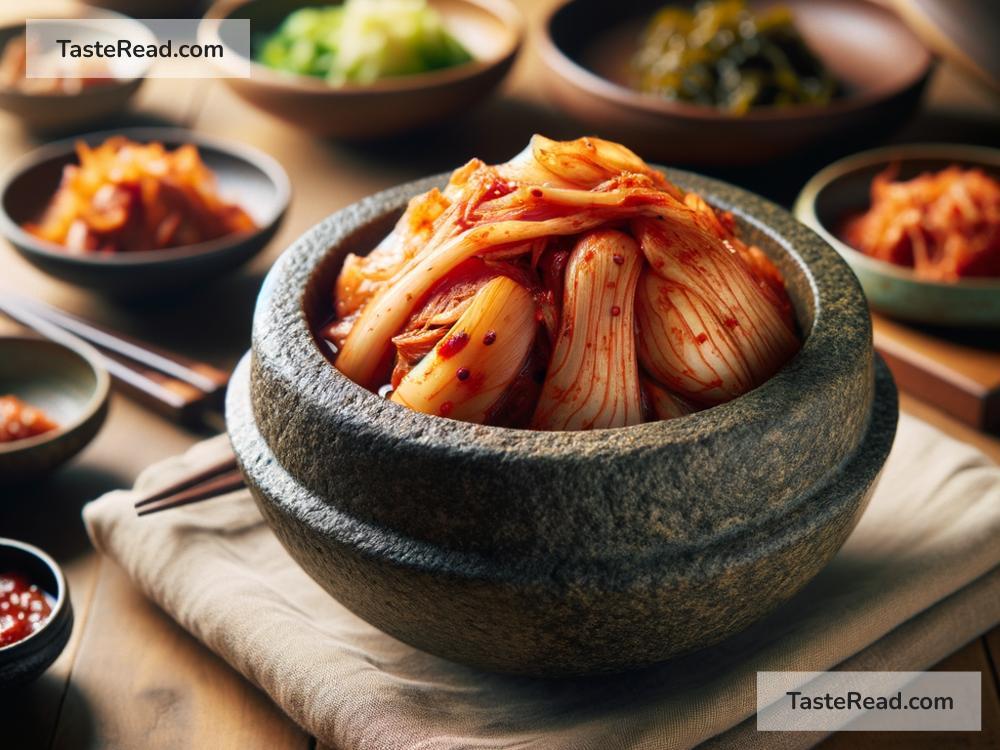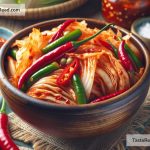Why Korean Kimchi Is an Essential Part of Every Meal
Korean cuisine is known worldwide for its rich flavors, unique cooking techniques, and healthy dishes. At the heart of Korean food culture lies a humble yet incredibly versatile dish: Kimchi. You might have seen this bright, spicy fermented cabbage served in small dishes at Korean restaurants or even found jars of it in your local grocery store. But why is Kimchi so important in Korean meals? Let’s dive into the world of Kimchi and discover why it’s an essential part of every meal in Korea.
Kimchi: The Soul of Korean Cuisine
Kimchi isn’t just a side dish; it’s an intrinsic part of Korean culture and history. Historically, during long, harsh winters when fresh vegetables were scarce, Koreans relied on Kimchi as a crucial source of nutrients. This tradition of fermenting vegetables has been passed down through generations, making Kimchi a staple in Korean households.
A Symphony of Flavors
One of the reasons Kimchi holds such a central place at the Korean table is its distinctive taste. Made by fermenting Napa cabbage or radish with a mix of garlic, ginger, fish sauce, and red chili pepper flakes, it offers a complex flavor profile that is spicy, tangy, and umami all at once. This makes it a perfect accompaniment to nearly every Korean dish, from rice and soups to meat and noodles. Its bold, piquant flavor elevates the taste of food and adds depth, making even the simplest meal exciting and enjoyable.
Health Benefits Galore
Beyond its taste, Kimchi is packed with health benefits, making it a superfood in the truest sense. The fermentation process not only extends its shelf life but also enhances its nutritional value. Kimchi is rich in vitamins A and C, and the lactic acid bacteria produced during fermentation are excellent for the gut, aiding digestion, and boosting the immune system. Regular consumption of Kimchi can also help fight inflammation, lower cholesterol levels, and even reduce the risk of certain diseases. It’s no wonder that Koreans consider Kimchi not just food but medicine.
Cultural Symbolism and Unity
Kimchi goes beyond being merely food; it’s a symbol of Korean identity and tradition. The communal act of Kimjang, where families and communities come together to make large quantities of Kimchi to last through the winter, is a significant cultural event. This tradition strengthens bonds within communities and connects people to their heritage. In this way, Kimchi represents unity and generosity, essential values in Korean society.
Versatility in the Kitchen
Another reason Kimchi is indispensable in Korean meals is its versatility. It can be enjoyed fresh, like a salad, or used as an ingredient in cooking. From stews (Kimchi jjigae) and fried rice (Kimchi bokkeumbap) to pancakes (Kimchi jeon) and even Western dishes like pizzas and tacos, Kimchi adds a unique twist that transforms the ordinary into something extraordinary. This adaptability has helped Kimchi find its way into the hearts and kitchens of people around the world.
The Global Love for Kimchi
Today, Kimchi is not just confined to Korean cuisine. Its global popularity is evident, with people from different cultures incorporating it into their diets. This worldwide love for Kimchi speaks volumes about its unique charm and universality. It’s a testament to how food can transcend cultural boundaries and bring people together.
Conclusion
Kimchi is much more than a spicy, fermented vegetable dish. It’s the embodiment of Korean culture, history, and tradition. Its essential role in meals reflects the Korean way of life, emphasizing balance, health, and community. For Koreans, Kimchi is not just food—it’s a way of life. Its complex flavor, incredible health benefits, and cultural significance make it a truly indispensable part of every meal. So the next time you enjoy a serving of Kimchi, remember, you’re not just tasting a dish; you’re experiencing a rich cultural heritage that has been cherished for centuries.


